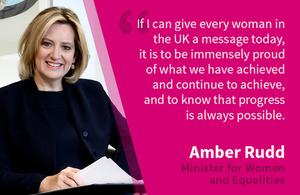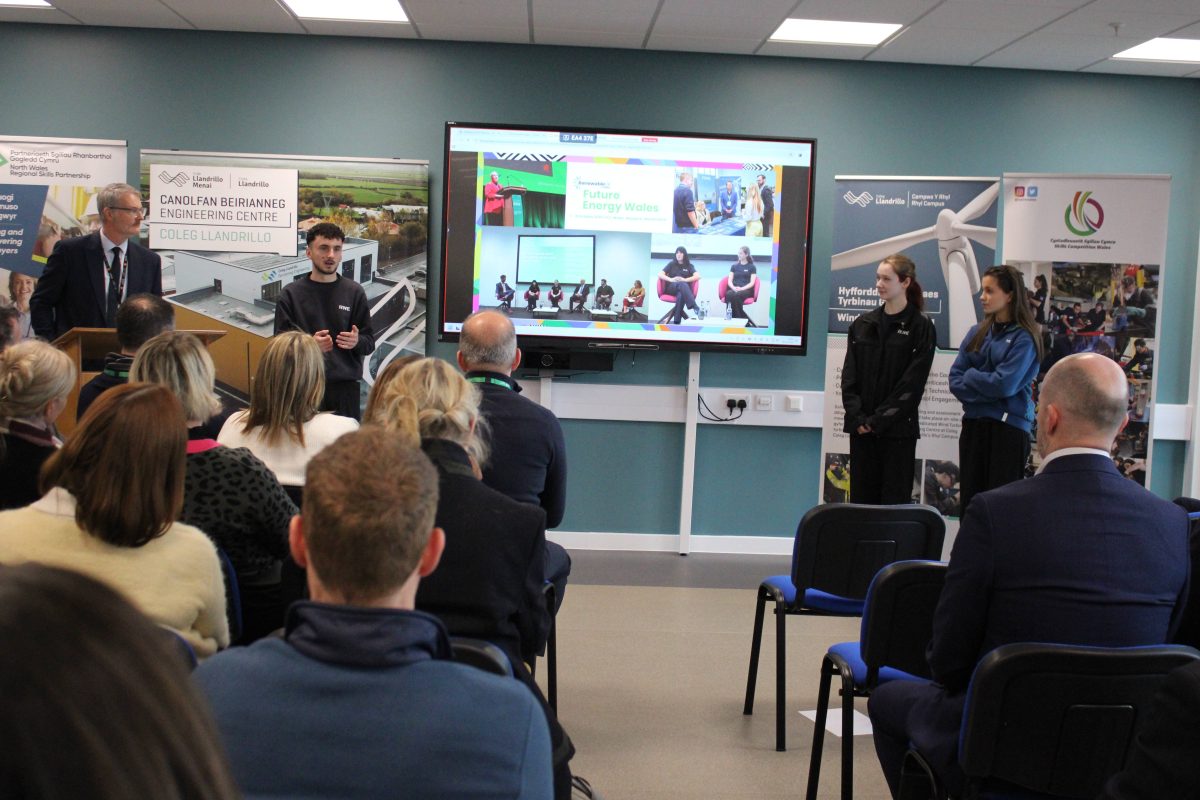How could your college use £2.5M to celebrate 100 years of women’s right to vote?

Amber Rudd yesterday (6 Feb) opened a £1.5 million Women’s Suffrage Centenary Grant Scheme for bids of up to £125,000 for projects running throughout the centenary year to encourage communities to celebrate and to help make modern politics more accessible.
Ms Rudd revealed how a further £1 million will be invested to mark the important democratic milestone, including a scheme to inspire a new generation of young women by matching them with leaders in their communities.
Home Secretary and Minister for Women and Equalities Amber Rudd said:
100 years ago, an army of brave women made enormous sacrifices to pave the way for the equal rights we enjoy in this country today.
The projects funded by this £2.5 million fund will honour their legacy by opening up modern politics to more people and ensuring we remember this landmark moment in our proud democratic history.
Over £1 million of the Centenary Grant Scheme will be available for at least 30 large-scale schemes to increase young people’s engagement with democracy and to encourage more women to take part in public life.
The rest of the fund will be made up of smaller grants of up to £2000 for local events to celebrate and remember those who campaigned for change.
The first of these events is being held this week to mark the 6 February 100-year anniversary of the act of Parliament that first gave some women the vote. Over £60,000 has already been awarded to 35 local projects, including a tea party in Liverpool to bring schoolchildren and older people together to celebrate women’s suffrage.
The Home Secretary announced that the additional £1 million funding will help fund a number of initiatives, including:
- a year-long pilot matching 650 young women with female community leaders – such as politicians or businesswomen – to help develop their leadership potential
- the closing ceremony for the 3-month long festival of The Great Exhibition of the North, which will commemorate the centenary and encourage more women to participate in politics
- a public procession where female MPs walk from Parliament to an ‘ask her to stand’ event to encourage more women to sign up as candidates
The government will also help fund a public art march through the streets of the 4 capital cities, with people dressed in violet, green and white to look like a moving suffragette flag.
A new Celebrating Votes for Women web page will help people find out more about getting involved in centenary events through the year. The page includes links to information about the history of the suffrage movement and details of how to apply for a grant, as well as an events hub to show what is happening across the country.
The grant scheme and £1 million investment are part of a £5 million centenary fund created by the government to celebrate the centenary and to open up public life to more people.
£1.2 million has been awarded to 7 ‘Centenary Cities’ and towns in England with a strong suffrage history to help inspire a new generation with the legacy of women’s campaign for equal representation.
A statue of leading suffragist Millicent Fawcett, who helped win the vote for women, will be unveiled in Parliament Square later this year.
When (some) women first won the right to vote 100 years ago, the idea that they would also have a hand in drafting legislation was laughable.
That they could be responsible for creating laws to protect women against sex discrimination, as well as discrimination on the basis of other ‘protected characteristics’, such as disability and race, was beyond the realm of most people’s imagination.
Yet lawyers from the Government Legal Department (GLD), who advise the Government Equalities Office (GEO), do exactly that.
An average day at the office for Anna Fairclough, a GLD lawyer who advises GEO, could involve briefing Ministers to respond to questions in the House of Commons, working with policy colleagues to make sure press lines are legally accurate, or drafting regulations to help close the gender pay gap.
Recently, Anna’s team has also helped to draft guidance on dress codes for employers – something which, in the future, will help those asked to wear inappropriate clothes at work. The team was also closely involved in implementing the Secretary of State’s 2017 commitment to provide free abortions in England for women from Northern Ireland.
“If you look at the recent controversies around equal pay at the BBC and the President’s Club – it’s obvious there’s still quite a long way to go,” says Anna, whose remit also includes issues relating to trans and non-binary people.
The Representation of the People Act 1918 gave certain women the right to vote: to qualify, you had to be aged over 30, a property owner, married to or a member of the Local Government Register, or a graduate voting in a University constituency. Eight and a half million women met these criteria – but that number still represented only 40% of the total population of women in the UK. The Act opened the door to full suffrage, which was achieved a decade later. In 1928, the Equal Franchise Act led to all women over 21 being able to vote with the same requirements and rights as men.
The Government Equalities Office works on a number of important programmes to address gender inequality and supports the Home Secretary in her role as Minster for Women and Equalities, supported by GLD lawyers.
One of the biggest projects last year dealt with by GLD lawyers advising GEO was drafting the Gender Pay Gap Regulations. The regulations ensure large employers are bound by law to publish data publicly on differences in average pay between men and women – guaranteeing that they can be held to account on this issue.
“That’s a massively important step towards identifying the gender pay gap, and the drivers of that inequality, and making sure that this is front and centre of people’s minds.” Anna says. “It’s great to work on something that’s so progressive – we’re the only country in the world to require such extensive public reporting of gender pay gaps.
“It’s brilliant working on things that are high-profile and interesting to talk about. They’re topical, exciting. And it’s great to be in a position to have a positive influence on the way society develops.”
GEO lawyers also assist in work with an international flavour, such as scrutinising the legislation and policy of British Overseas Territories to test compliance with the Convention on the Elimination of All Forms of Discrimination against Women, so as to extend the Convention to protect women in those territories.
In the future, Anna anticipates the team will be able to go even further in advancing equality for women: “I expect there will be further work to raise awareness of acceptable dress codes and treatment of women at work, as well as projects to increase women’s political participation at every level and to encourage women to return to work after career breaks. I’m keen to see how the first year of gender pay gap reporting plays out, and how employers start making positive changes to reduce the gap.
“The past few months have seen a sea change in attitudes to women, and hopefully we’ll be working on projects that aim to seize and build upon that mood.”











Responses